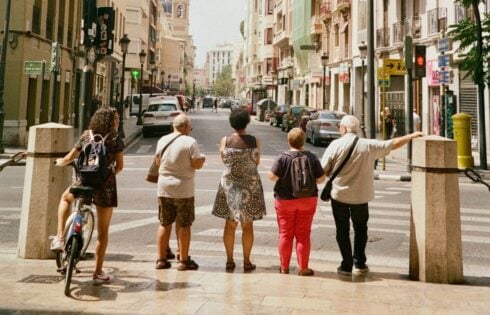‘April Fool’s Day’ marks some significant Spanish anniversaries.
If you mention ‘Christopher Columbus’ to your Spanish friends, they won’t understand what you’re even talking about. In Spanish, he’s known as ‘Cristóbal Colón’.
We all know that Christopher discovered the continent of America, creating in the process the Spanish Empire. What is not widely known outside Spain is that his eldest son, Diego Colón, became an important personality in his own right. Diego was born on 1 April, 1479. When he was 13 years old, the year in which his father set off for the Americas, Diego was appointed a royal pageboy at the Spanish court.

His famous forebear died in 1506, claiming that he had been cheated out of his wealth and titles. Diego would spend his own life trying to recover his father’s possessions. Two years later, Diego was sent to the ‘Indies’ (what we would now call the Caribbean) as Spain’s royal governor. He claimed Cuba for Spain, and his house is still standing today. Diego died in 1526 and—true to family tradition—his titles and wealth were squabbled over by his descendants.
Brielle in 2025 is an unimportant suburb of Rotterdam, in Holland, but on 1 April 1572, it mattered a lot. Spain had inherited the ‘low countries’ by royal marriage, but the people of Holland and Belgium wanted to be free of Spanish control. Brielle was the first town captured by the Dutch in the Eighty Years’ War, the initial step in breaking away from Spain.

If you ever find yourself in the Segovia area, northwest of Madrid, we strongly recommend that you pass a couple of hours at La Granja, the delightful summer palace of King Felipe V. Work began on this beautiful royal residence and its gardens on 1 April 1721.
Is Spain a Catholic country, or not? On the surface, yes—we all know that Holy Week is imminent, and the TV news often shows us what the Pope is doing. But it might come as a surprise to learn that there are definite anticlerical moments in Spanish history. On 1 April 1767, for example, King Carlos III expelled the Jesuits from Spain. The Society of Jesus, or ‘the Pope’s Shock Troops’ as they are sometimes known, were regarded as too Catholic for Spain!
It was also on 1 April, but this time in 1901, that Málaga city saw anti-Catholic rallies. Marxism (and its offshoot, anarchism) had become very popular among the ‘braceros’, and these people saw the Church as a defender of the rich. Braceros were Andalucían peasants who owned no land: they couldn’t even grow their own vegetables and were entirely dependent on ‘caciques’ (local foremen, hired by aristocrats) to give them work on a daily basis.
It was on 1 April 1939 that Franco announced that the Spanish Civil War was finally over. It had been raging for three years and had cost 200,000 deaths (about the same number of casualties as Britain suffered in World War Two).

In the aftermath of the Second World War, it had become obvious that the colonial period was at an end. Britain and France were withdrawing from their possessions in Africa, and Spain renounced its claims over Moroccan territory on 1 April 1956. The way was now open for the modern, independent state of Morocco to come into existence.
On 1 April 1959, Franco authorised work to start on the Valley of the Fallen (Vallé de los Caidos), the huge Fascist monument to the Civil War dead. The Madrid site has long proved controversial. Republican prisoners were used as slave labour in its construction, and (until 2019) Franco himself was buried there.
Click here to read more La Cultura News from The Olive Press.








